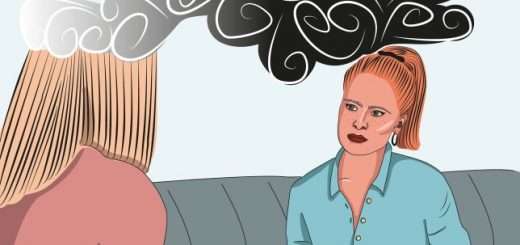Being Diagnosed with BPD (Royal College of Psychiatrists)
As part of Borderline Personality DIsorder (BPD) Awareness Month, we are giving our blog space to Alison, who has written as part of the #BPDAndMe campaign. The campaign was co-created with individuals with Borderline Personality Disorder, the Mental Health Improvement team at NHS GGC, the BPD Pathway Steering Group, and the Mental Health Network. Read the original piece.
Everyone’s experience of receiving this diagnosis will be different. For some it will come in what could still be termed formative years; for others it could come after decades of struggling and confusion. For some it might feel like the end of the world; for others it may be a relief. Others might really not know how they feel about it.
The crucial thing to hold on to is that there is no right or wrong response. You feel the way you feel and your feelings are as valid as anyone else’s. You’re allowed to be relieved, sad, scared, angry, confused. To feel any or all of those things. Or even what seems like nothing at all.
Maybe the diagnosis of a personality disorder left you feeling as though you in your most basic form, your most fundamental “you-ness” are flawed and somehow wrong. That there’s some irrevocable fault in your make-up. Something that can never be changed. Because surely if your personality is supposedly disordered, you’re broken at your very core. You might feel like it’s your fault you are the way you are. Like you deserve all the hurt and distress you experience. Because you’re the one whose personality is fractured, inherently wrong. And if you read some of the stuff online it might make you feel like you’re a lost cause, beyond fixing.
That’s not true.
I repeat: that’s not true. None of it.
All your complex feelings are valid. All of them. Even the ones that tell you it’s your fault. If you feel it, it’s valid. But that doesn’t mean it’s true. Please believe me that’s it’s not your fault. And hopefully in time you will gradually come to recognise that.
It’s taken me a while. I’m still working on it.
I don’t know how or when you received your diagnosis or how long it took. I do know you’ll have been through a hell of a lot before you did.
For me, getting the diagnosis confirmed was a long process. I had suffered from anorexia from the age of 16, which reached its lowest point in 1998 at the age of 21 when I saw a mental health professional for the first time and was put on antidepressants. After graduating from university the following year, I moved to Berlin in 2000, where I had a period of being mostly well (or what I thought was well) until another mental health crash happened. I spent 8 weeks as a day patient in a psychiatric clinic, followed by 13 weeks on an inpatient programme for eating disorders.
When the programme ended, the discharge letter listed among the other diagnoses something termed ‘Emotionally Unstable Personality’. I didn’t understand what that meant; I don’t recall it ever being mentioned during therapy. To be honest, I didn’t even realise it was an official diagnosis. I thought it just meant I was a bit oversensitive and flaky. I never thought to look it up. That was in 2003 when I was 26.



